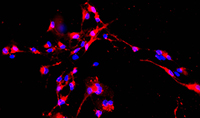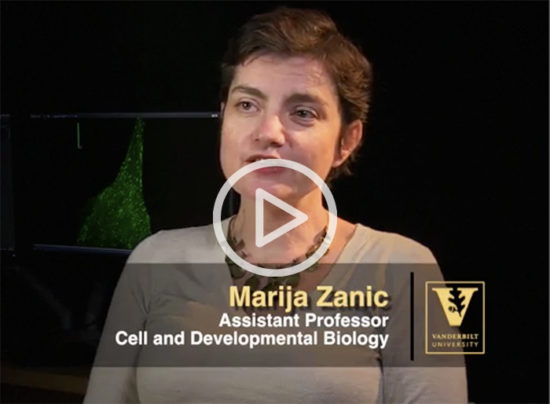NEWS!
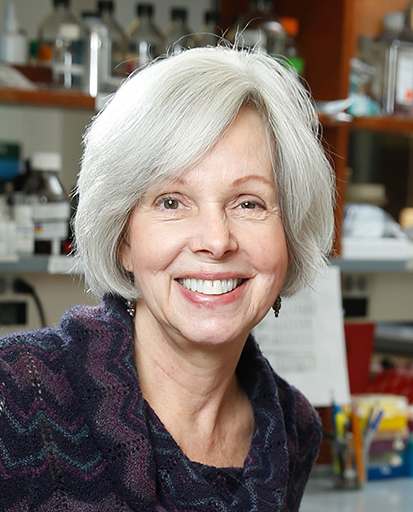 Richmond named Legacy Lecturer Richmond named Legacy Lecturer
Professor of Pharmacology Ann Richmond was recognized by the Society for Leukocyte Biology through the SLB Legacy Keynote Lecture Award. It is the highest honor that can be presented to an SLB member and is presented to a researcher who has made a great impact and contributions to the leukocyte field.
 Reuters ranks VU within top 20 most innovative universities Reuters ranks VU within top 20 most innovative universities
Every year, Reuters compiles a list of the 100 most innovative universities from around the world. This year, Vanderbilt ranked #19, joined by institutions such as Stanford, MIT, Harvard, Johns Hopkins, and more within the top echelon.
 Tyska research featured by Scientific American Tyska research featured by Scientific American
Scientific American, a popular science magazine, found science-related GIFs it could share with its readers in time for Halloween. Amongst the features was a HeLa cell labeled with a membrane probe that members of the lab of Matt Tyska (CDB) imaged on a confocal microscope. Check it out!
Basic Sciences launches new Educator Faculty website
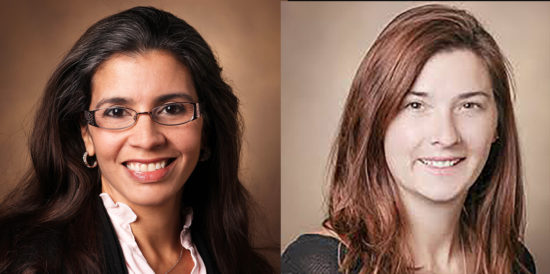
Lourdes Estrada (Biochemistry) and Kendra Oliver (Pharmacology) have launched a new webpage designed to serve as a resource and showcase of all our basic sciences and medical educators. Educator faculty members pioneer meaningful change in learning, innovative educational approaches, technological integrations, and more.
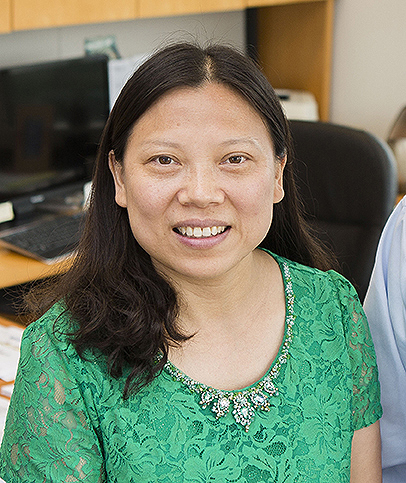 Mom to the rescue Mom to the rescue
In March 2017, a woman gave birth to a baby with an extremely rare genetic defect. Since then, she has fundraised and spearheaded efforts to find a cure for her child. Katty Kang (Neurology) is part of this search process, and will be testing custom-made mice carrying the same mutation as the child. Read more about this story on BuzzFeed.
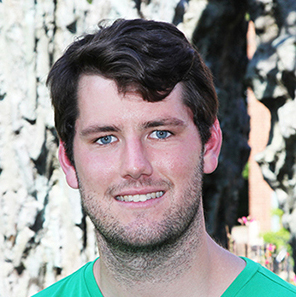 Marinko recognized with Karpay Award Marinko recognized with Karpay Award
Justin Marinko, a graduate student in the lab of Chuck Sanders (Biochemistry) was awarded the Karpay Award in Structural Biology. This award recognizes graduate students who are well-rounded colleagues and scientists, who are collaborative and collegial, and who have performed exceptional research in structural biology. As part of the award ceremony (January 21, 2020 at 12:20 PM in 1220 MRBIII), Marinko will present a research talk.
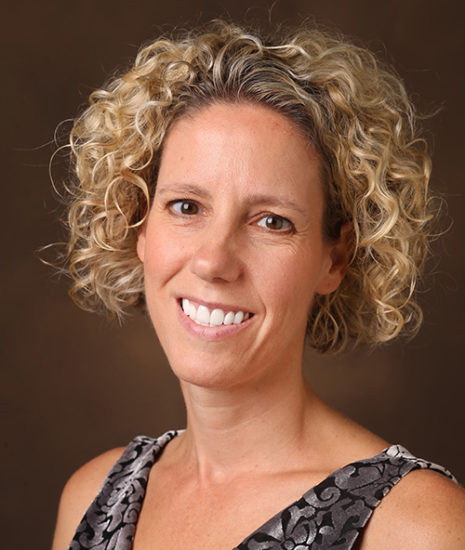 Hasty – Key lecturer during ObesityWeek Hasty – Key lecturer during ObesityWeek
The Obesity Society’s ObesityWeek scientific sessions bring together researchers from around the world to discuss obesity within the context of basic science, clinical application, surgical intervention and prevention. Alyssa Hasty was selected as a key lecturer (plenary speaker) for the Basic Science—Metabolism and Integrative Physiology part of the program.
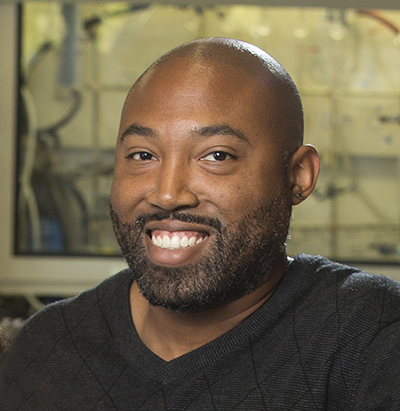 Steven Townsend: Professor, Chemist, Mentor Steven Townsend: Professor, Chemist, Mentor
One of this year’s C&EN Talented 12, Steven Townsend is more than just a single facet of his personality and identity. Read more about Townsend’s professional accomplishments, as well as what makes him tick as a mentor.
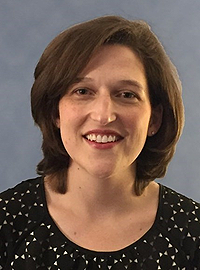 V Foundation recognizes Weiss V Foundation recognizes Weiss
The V Foundation for Cancer Research has named Vivian Weiss (PMI) a V Scholar, a recognition that comes with funding that will go toward improving the diagnosis of thyroid cancer in pediatric patients and identifying potential treatment targets.
Trainees rock funding game
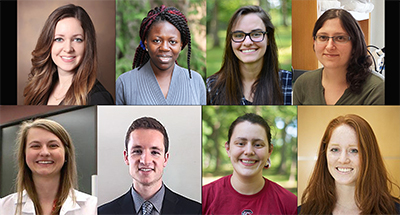
Lots happening this month with trainees earning research funding from different institutions. From NCI, Lindsay Redman (Biochemistry, Pietenpol lab), Verra Ngwa (Cancer Biology, Jin Chen lab), and Margaret Axelrod (Cancer Biology, Justin Balko lab) earned awards. From NIAID, Jessie Perlmutter (Biological Sciences, Seth Bordenstein lab) and Lauren Williamson (PMI, James Crowe lab). Corey Bown (Neuroscience, Angela Jefferson lab) was awarded a grant from the NIH, Elizabeth Moore (Neuroscience, Jefferson lab) from the NIA, and Elizabeth Flook (Neuroscience, Jennifer Blackford lab) from the NIAAA. Congratulations!
NEW DISCOVERIES
Dendritic spines observed in worms

Despite a widespread assumption that C. elegans do not possess dendritic spines, the lab of David Miller (CDB) has found that not only do worms have these features, but the spines’ morphology, development, and function appear to be similar to those of vertebrates.
Brush border formation depends on G-actin
 Matt Tyska’s lab recently published a paper in Current Biology that suggests that the availability and allocation of monomeric actin — G-actin — is crucial for brush border formation. Matt Tyska’s lab recently published a paper in Current Biology that suggests that the availability and allocation of monomeric actin — G-actin — is crucial for brush border formation.
New way to treat depressive disorders?
 The lab of Jeff Conn (Pharmacology) and collaborators recently probed a new approach to treat depression: modulating the amount of glutamate that is released at synapses. The lab of Jeff Conn (Pharmacology) and collaborators recently probed a new approach to treat depression: modulating the amount of glutamate that is released at synapses.
Essential role for intrinsically disordered region
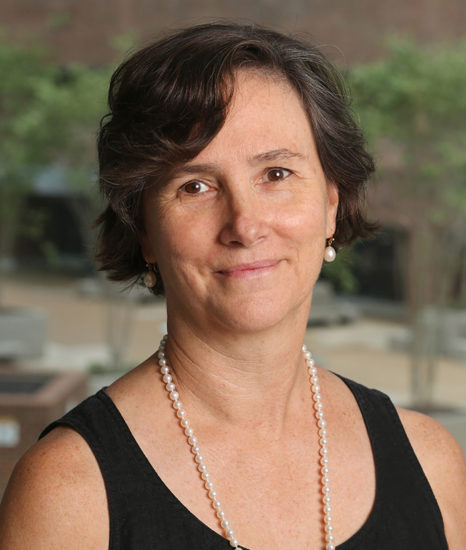 The intrinsically disordered region of the Cdc15 protein was found to be essential for cell viability, proper cytokinesis dynamics, and cytokinetic ring integrity, reports the lab of Kathy Gould (CDB). The intrinsically disordered region of the Cdc15 protein was found to be essential for cell viability, proper cytokinesis dynamics, and cytokinetic ring integrity, reports the lab of Kathy Gould (CDB).
Untangling questions in DNA replication termination
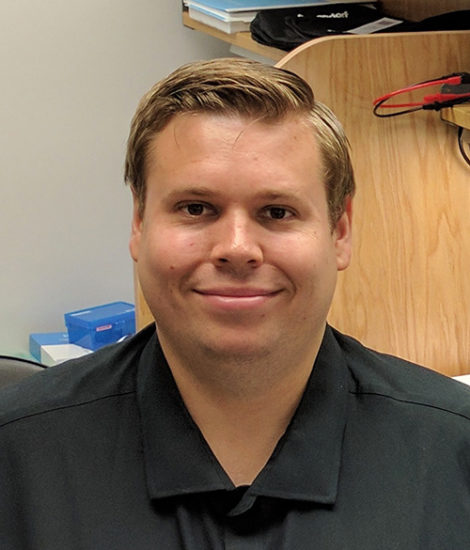 The lab of James Dewar (Biochemistry) has shed light on the role of topoisomerase IIα in DNA replication termination: it must act to untangle the genome throughout replication to allow for the timely completion of replication termination. The lab of James Dewar (Biochemistry) has shed light on the role of topoisomerase IIα in DNA replication termination: it must act to untangle the genome throughout replication to allow for the timely completion of replication termination.
New development in vaccine technology
 A collaboration between the labs of James Crowe (Pediatrics), John Wilson, and Sebastian Joyce (PMI) resulted in the development of a nanoparticle nasal spray vaccine that generates a more robust immune response than those of previous types of vaccines. A collaboration between the labs of James Crowe (Pediatrics), John Wilson, and Sebastian Joyce (PMI) resulted in the development of a nanoparticle nasal spray vaccine that generates a more robust immune response than those of previous types of vaccines.
Zn sequestration research featured on journal cover
 Infection and Immunity has selected artwork by Miriam (Ayo) Sanusi for its December cover. Sanusi’s art was created as part of the Vanderbilt Institute for Immunology, Infection & Inflammation/ArtLab Artist-in-Residence program, and is a companion to a paper from the lab of Eric Skaar (PMI) that focuses on the Zn uptake system, Znu, of the pathogen Acinetobacter baumanii. Infection and Immunity has selected artwork by Miriam (Ayo) Sanusi for its December cover. Sanusi’s art was created as part of the Vanderbilt Institute for Immunology, Infection & Inflammation/ArtLab Artist-in-Residence program, and is a companion to a paper from the lab of Eric Skaar (PMI) that focuses on the Zn uptake system, Znu, of the pathogen Acinetobacter baumanii.
Update on HuBMAP program
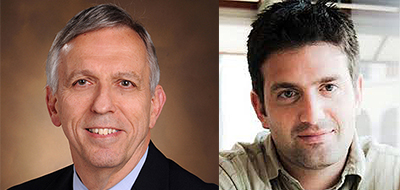
The NIH Human Biomolecular Atlas Program’s (HuBMAP) Consortium recently published in Nature an update on its progress. HuBMAP’s goals are to develop an open framework and technologies for mapping the human body at cellular resolution and to generate foundational maps for several tissues obtained from normal individuals across a wide range of ages. Richard Caprioli (Biochemistry) and Jeffrey Spraggins (Biochemistry) are the co-leaders of HuBMAP’s kidney atlas project.
FUNDING
Komen to support breast cancer research at VU
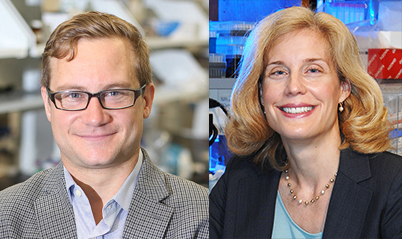
John Wilson (Chemical and Biomolecular Engineering) and Jennifer Pietenpol (Biochemistry) have been awarded grants from the Susan G. Komen Foundation. Wilson will use the grant to research chemo-immunotherapy combinations for metastatic breast cancer, and Pietenpol to identify therapeutic approaches for different types of triple-negative breast cancer.
Rathmell earns Lupus Research Alliance funds

Jeffrey Rathmell (PMI) has been awarded the Dr. William E. Paul Distinguished Innovator Award in Lupus and Autoimmunity from the Lupus Research Alliance. He will be using the funds to better understand the role that T cell metabolism plays in lupus-related inflammation and to test whether two cancer drugs currently in clinical development could potentially reduce or prevent lupus symptoms. Fabienne Mackay, from the University of Melbourne, is a co-awardee.
NIDDK grant funds new consortium

The National Institute of Diabetes and Digestive and Kidney Diseases (NIDDK) has funded the creation of the Pediatric Congenital Diarrhea and Enteropathy (PediCODE) Consortium and Repository, which will focus on identifying unknown gene mutations causing congenital diarrheas, studying the mechanisms behind both known and unknown genetic mutations, and developing new ways to treat associated diseases. James Goldenring (Medicine) will head Vanderbilt’s efforts.
VU/VUMC team will help create a gut cell atlas

The medical center has received a grant from the Harry B. Helmsley Charitable Trust to map the biology of Crohn’s disease. Keith Wilson (Medicine) will serve as team leader. Through the use of various single-cell gene expression and spatial information tools, the group will construct an atlas of the gut from biopsy and surgical samples from both healthy individuals and Crohn’s disease patients. In addition to Wilson, the five co-PIs who will participate in this research are Lori Coburn (Medicine), Ken Lau (CDB), Gregor Neuert (MPB), Qi Liu (Biostatistics), and Bennett Landman (Electrical Engineering, Computer Engineering, and Computer Science).
External Funding Opportunities
Basic Experimental Studies with Humans
The NIH has recently announced the publication of new funding opportunities specifically for research involving human subjects that aims to understand the fundamental aspects of phenomena without an immediate or apparent application. See their FAQs here and keep on the lookout for these opportunities.
New NIH F33 grant opens for NIGMS-funded PIs
This F33 is targeted toward experienced scientists who wish to make major changes in the direction of their research careers or who wish to broaden their scientific background by acquiring new research capabilities. Standard application dates apply to this grant (next deadline: December 8). Visit the program announcement for more details.
F series NIH fellowships for predoctoral and postdoctoral trainees
The NIH has a series of fellowships available to doctoral students and postdocs that can help you distinguish yourself and support your research. Visit their website to find out more about each type of fellowship. The next deadline is December 8.
Chateaubriand Fellowship for Ph.D. students
The Chateaubriand Fellowship call for applications for the 2020-2021 academic year is now open. This fellowship offered by the Embassy of France in the United States allows PhD students enrolled in American universities to conduct research in France for 4-9 months. Applications are due by January 7, 2020.
Internal Funding Opportunities
Global Research and Engagement Micro-Grants
The Office of the Provost invites faculty to submit proposals for the Global Research and Engagement Micro-Grants to help with the opportunity to pursue international research, scholarship, and creative expression projects, or to pursue strategic, time-sensitive opportunities for global research and engagement. Applications for this grant are received on a rolling basis through June 2020, and winners are announced monthly.
VINSE pilot funding available
The Vanderbilt Institute of Nanoscale Engineering (VINSE) announced that funding is now available to provide Vanderbilt investigators the opportunity to utilize VINSE tools to obtain preliminary results for new research initiatives. Typical awards range from $500 to $2,000 for up to 6 months on a fiscal year basis and are designed to cover VINSE user fees. For more information about this funding opportunity or to apply visit the VINSE website.
| ![CAS - Basic Sciences - Internal E-Newsletter [Vanderbilt University]](https://cdn.vanderbilt.edu/vu-URL/wp-content/uploads/sites/119/2021/04/19142723/basically-speaking-banner-04-2021.jpg)
 Richmond named Legacy Lecturer
Richmond named Legacy Lecturer Reuters ranks VU within top 20 most innovative universities
Reuters ranks VU within top 20 most innovative universities Tyska research featured by Scientific American
Tyska research featured by Scientific American
 Mom to the rescue
Mom to the rescue Marinko recognized with Karpay Award
Marinko recognized with Karpay Award Hasty – Key lecturer during ObesityWeek
Hasty – Key lecturer during ObesityWeek Steven Townsend: Professor, Chemist, Mentor
Steven Townsend: Professor, Chemist, Mentor V Foundation recognizes Weiss
V Foundation recognizes Weiss

 The lab of Jeff Conn (Pharmacology) and collaborators recently
The lab of Jeff Conn (Pharmacology) and collaborators recently  The intrinsically disordered region of the Cdc15 protein was found to be essential for cell viability, proper cytokinesis dynamics, and cytokinetic ring integrity,
The intrinsically disordered region of the Cdc15 protein was found to be essential for cell viability, proper cytokinesis dynamics, and cytokinetic ring integrity,  The lab of James Dewar (Biochemistry) has shed light on the role of topoisomerase IIα in
The lab of James Dewar (Biochemistry) has shed light on the role of topoisomerase IIα in  A collaboration between the labs of James Crowe (Pediatrics), John Wilson, and Sebastian Joyce (PMI) resulted in the development of a
A collaboration between the labs of James Crowe (Pediatrics), John Wilson, and Sebastian Joyce (PMI) resulted in the development of a  Infection and Immunity has selected artwork by Miriam (Ayo) Sanusi for its
Infection and Immunity has selected artwork by Miriam (Ayo) Sanusi for its 










